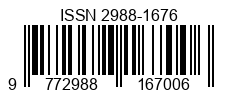Pengaruh Disiplin Kerja, Perilaku Organisasi, dan Self Efficacy Terhadap Kinerja Karyawan Yayasan Melania Jakarta
Keywords:
work discipline, organizational behavior, self-efficacy, employee performanceAbstract
The purpose of this study is to 1) find out and test the effect of work discipline on the performance of Melania Foundation employees 2) find out and test the influence of organizational behavior on Melania Foundation employee performance 3) find out and test the effect of self efficacy on Melania Foundation employee performance 4) find out and test the effect of work discipline, organizational behavior and self-efficacy on the performance of Melania Foundation employees. This research is a quantitative research. The research population is Melania Foundation employees. The sampling technique is saturated sampling. The number of samples is 76 respondents. Data collection techniques are interviews and questionnaires. The data analysis technique used is multiple linear regression. The results showed that the multiple regression equation was Y = 1.077 + 0.229 DK + 0.236PO + 0.391SE. The regression coefficient is positive, meaning that work discipline has a significant effect on employee performance, organizational behavior has a significant effect on employee performance and self-efficacy has a significant effect on employee performance. This means that if work discipline, organizational behavior and self-efficacy increase, it is followed by an increase in employee performance. Based on the results of the study, it can be concluded that (1) work discipline has a significant effect on employee performance as indicated by a probability value of 2.528> 1.96 (t table), (2) organizational behavior has a positive and significant effect on employee performance as indicated by a probability value of 3.025 > 1.96 (t table) (3) self-efficacy has a positive and significant effect on employee performance as indicated by a probability value of 3.122 > 1.96 (t table) and Adjusted value R square of 0.833. This shows that 83.3% of employee performance is influenced by work discipline, organizational behavior, and self-efficacy, while the rest is influenced by other factors not explained in the study.






